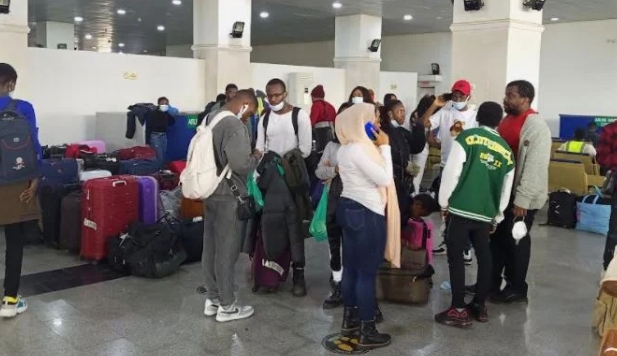The United Kingdom (UK) has unveiled new sentencing powers that will ban criminals from pubs, concerts, and sports matches as part of its Plan for Change.
According to a statement available on the UK government website on Sunday, Judges will be able to curtail offenders’ freedoms with driving limits, travel bans, and restriction zones confining them to specific areas.
The release, which quoted Lord Chancellor and Justice Secretary, Shabana Mahmood, said: “Widening the range of punishments available to judges is part of our Plan for Change to cut crime and make streets safer.
“When criminals break society’s rules, they must be punished. Those serving their sentences in the community must have their freedom restricted there too.
READ ALSO:
“These new punishments should remind all offenders that, under this Government, crime does not pay.
“Rightly, the public expect the government to do everything in its power to keep Britain safe, and that’s what we’re doing.’
The UK government further explained that the changes will toughen up community punishments to deter reoffending and force offenders back onto the straight-and-narrow.
“As part of the Government’s work to do everything in its power to keep Britain safe, offenders coming out of prison and supervised by the Probation Service will also face similar restrictions and an expanded mandatory drug testing regime,” the statement added.
READ ALSO:
The government also explained that criminals without known drug habits will, in the future, face this scrutiny, not just those with a history of substance misuse.
Offenders who break the rules face being brought back to court or hauled back to prison as punishment, depending on the sentence they are serving.
Limited bans for Crimes amid prison congestion
Before this new policy shift, judges in the UK are able to give out limited bans for specific crimes, for example, football bans for crimes committed inside a stadium on match day, to prevent further antisocial behaviour.
However, the Government will change the law shortly so that such bans can be handed down as a form of punishment for any offence in any circumstance.
READ ALSO:
“It will form part of wider reforms to sentencing to ensure punishments cut crime and prisons never again run out of places for dangerous offenders.
“Over 2,400 prison places have opened since July 2024 with the Government investing £7 billion to create a total of 14,000 as the prison population increases.
“Investment in the Probation Service will also receive a huge boost with an increase of up to £700 million by 2028/29, up from the annual budget of around £1.6 billion today.”
This week, it was revealed that the number of Probation Officers has increased by seven per cent in the last 12 months, with trainee probation officer numbers also seeing a surge of 15 per cent. This follows the Government’s commitment to recruit a further 1,300 this year, in addition to the 1,000 trainee probation officers recruited last year.
New technology, including artificial intelligence, will lighten the administrative burden and free up time for probation staff to increase supervision of the most dangerous offenders and keep the public safe.
